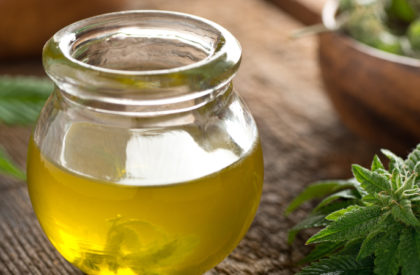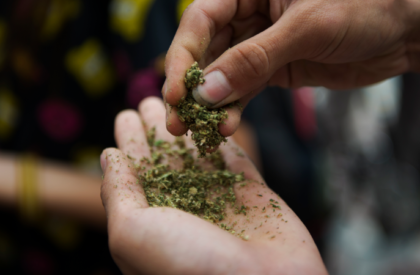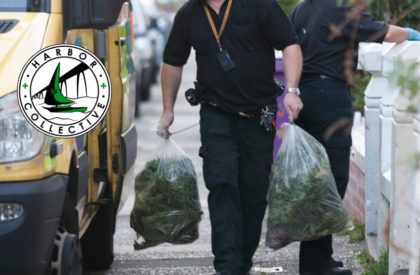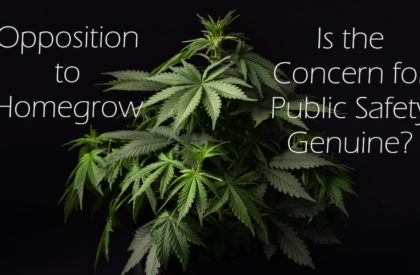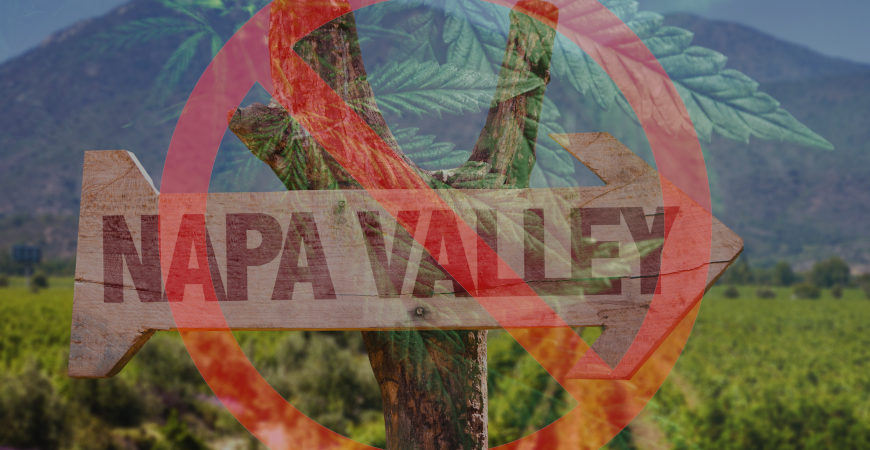
Napa Says No to Cannabis
Napa County's Board of Supervisors voted unanimously to ban the agricultural growing, processing, and sale of marijuana.
California’s Wine Country is famed for its rich variety of premium wineries, Michelin star restaurants, and picturesque vineyards. Wine-making and tourism are big business here, with Napa and Sonoma Counties leading the way. Now that California has legalized the recreational use of cannabis since 2016, it is no wonder that marijuana farmers have been eyeing these fertile lands to kick start local cultivation.
Unfortunately, there has been strong opposition to marijuana growing in these regions. While the sale and use of marijuana is permitted, the state legislature has left it up to local authorities to decide on the details. Earlier this month, Napa County’s Board of Supervisors voted unanimously to ban the agricultural growing, processing, and sale of marijuana in its unincorporated areas.
Related Article: Arizona Iced Tea is Joining the Cannabis Industry
Dispensaries & Deliveries within City Limits
Thankfully this ban does not affect dispensaries located within city limits, or delivery companies. While commercial growth has been banned, residents are still allowed to grow for personal use. Despite numerous public outreach meetings organized by the board, this new ordinance is set to take effect on November 21st, just two weeks before Napa extended a moratorium that was due to expire.
This turn of events has been bad news for members and supporters of the group Napa County Citizens for Responsible Green Cannabis Regulations. They had intended to put forward the issue for a ballot vote in the March 2020 election. The initiative, dubbed Measure J, sought to allow up to one acre of marijuana cultivation on rural properties of 10 acres or more. It also outlined tax measures and prescribed distances at which the crops could be planted away from schools and parks.
Related Article: California’s Goal to Certification of “Almost Organic” Cannabis

Issues Raised by Local Wine-Makers & Napa County Farm Bureau
The group, however, withdrew Measure J, opting to work on developing a marijuana-friendly ordinance with the Board of Supervisors that would allow for small scale growing on one-acre plots. However, with a ban now in place, the supervisors and other county officials are expected to hold further public discussion forums on how and whether to allow cannabis farming in the coming year.
Among the key concerns that local wine-makers and the Napa County Farm Bureau have raised include issues of smell wafting to their properties from the neighboring cultivated areas, and the use of pesticides. Some farmers believe that a failure to use certain pesticides by cannabis growers could endanger wine crops. A report by the real estate firm HDL Companies and Goldfarb & Lipman, LLP also seems to support the claim that cultivation could result in a pungent odor affecting neighboring properties, and detract from nearby wine tasting areas. Another issue raised is that the presence of cannabis fields will change the appearance of the landscape that has been a big draw for tourists.
Related Article: Opposition to Homegrow – Is the Concern for Public Safety Genuine?
What is Measure J?
For Eric Skylar, a proponent of Measure J, the claim of pungent odor is ridiculous, and he has previously hosted Napa County Supervisor, Brad Wagenknecht, to his Lake County farm to test this theory. Standing 2,000 feet from the garden, Wagenknecht confirmed that he could not smell anything.
While Napa takes its time deciding on when to join the lucrative cannabis industry, neighboring Sonoma has made some positive strides by approving one of the local farms to proceed with the cultivation of one acre of cannabis. Petaluma Hills Farm, a 37-acre parcel of land owned by Sam Magruder is set to begin growing plants in the spring, with half an acre in the fields and another half in greenhouses.
Magruder will, however, need to fulfill around 200 conditions before then, including the planting of hedges to conceal the crop from neighbors. Despite having arrived at this point, Magruder still faces stiff opposition from these neighbors who have filed a lawsuit against him. Among the concerns raised is the issue of security risks from criminal elements being attracted to the crop and complaints of odor. However, thankfully for Magruder, the Board of Supervisors’ decision now allows him to move forward with plans to prepare the grounds and seek building permits.



